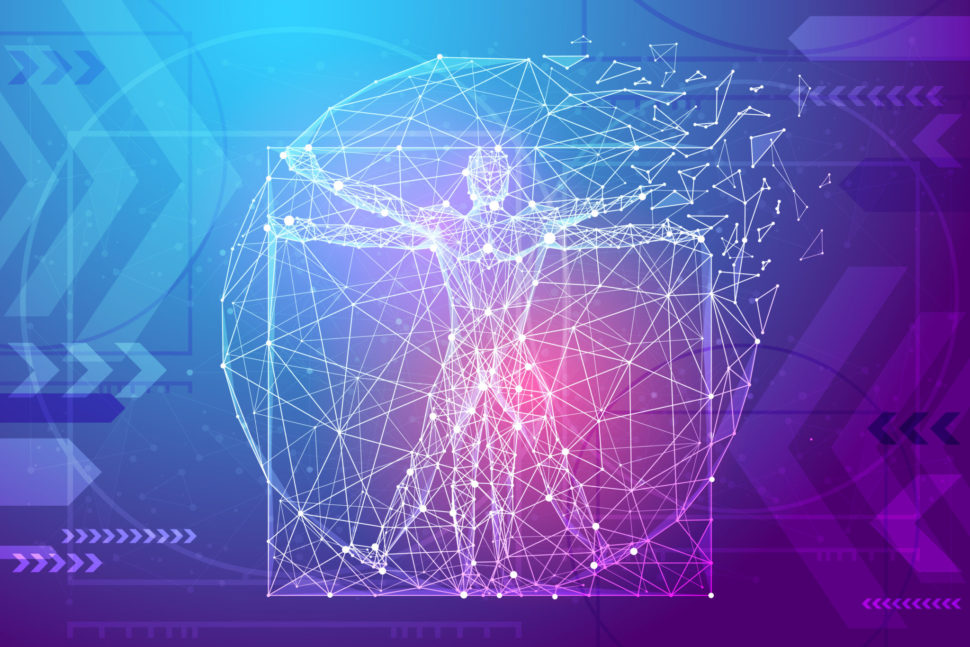The Renaissance was a period in Europe that marked a major break from medieval times. Now, we may be living through another transitional period driven, once again, by scientific revolution.
Shaking up the political and religious spheres, the Renaissance period saw the emergence of new sciences and new literary and artistic schools along with new political, social, and economic models.
It marked a time where education and discovery fundamentally shifted from authority and faith to scientific reasoning and thought. Many historians see this period as the beginning of the Modern Era, and that is largely due to the changes in thought that happened during this time.
At the heart of Renaissance was Humanism, a school of thought which made a significant departure from previous mindsets of the Middle Ages.
The Humanist movement brought a new mode of thinking that put humans and human values into the core of intellectual, philosophical, political, and social thoughts.
Throughout this period, authority and power were slowly moved from religious and political figures into the hands of wealthy industrial moguls and merchants. This led to a freedom and innovation within the commercial and creative worlds that bred competition, imagination, and, fundamentally, an economic boom which changed the world forever.
The term Renaissance is the French for “rebirth”, and at the time it was truly a redevelopment of classical thinking, particularly that of the Ancient Greek and Roman schools of thought.
Now, with the rise of automation, AI, economic upheaval, and political debate, the world may see another Renaissance, not from Humanism but Transhumanism.
Evolution will be driven by a non-natural selection.Click To TweetWe did Well With Renaissance Sciences, now we Need a “Science Renaissance”
We owe the Renaissance period for many things that changed our world, such as the invention of the printing press, the scientific method, the birth of archeology, modern philosophical thought, modern architecture, staggering artistic achievements, and capitalism.
We’ve come a long way since the Renaissance and achieved some incredible things in that time. Today, however, the world seems to be falling, again, into disruption and division. Amid many critical issues and existential risks, humanity is looking for a path of renewal and salvation, both consciously and subconsciously.
It is certainly possible that humans could solve their own the problems they themselves have created, and the best way of solving these issues is through science.
The progress of science and cutting-edge technologies, especially during the last decade, has made it possible to dream of transforming humans and even the fundamental idea of what it is to be human entirely. Soon, it may be possible to transcend our inherent biological constraints and make issues like sickness, aging, and even death a thing of the past.
Some transhumanists believe that not only will science save humanity, but will lead to the emergence of a whole new species.
Others fear that this conjunction may turn into a dramatic scenario and lead to the “dehumanization” of humans.
The world is going through a gestation period, similar to the period before the Renaissance, full of chaotic changes that are yet to be fully understood.
All Hail “Homo Evolutis”!
Technology worship and addiction are at an all-time high. Though most people stop at a minor addiction to their smartphone, there are those who go all the way to consider technology the savior of humanity and venerate it in a religious way.
Anthony Levandowski, a self-driving car expert, recently founded a techno-religion to worship the technological Singularity.
Juan Enriquez is a researcher, businessman, author, and possibly the modern definition of a Renaissance Man. He’s the founder of Genomics Inc. the director of Excel Venture Management and also the founding director of the Life Sciences Project of Harvard Business School.
In a 2009 TED Talk (The Next Species of Humans), Enriquez said the big reboot for humanity was coming, and that it would be born from research labs.
In his latest best-seller, Enriquez explains how evolution is no longer driven solely by nature, but that a non-natural selection, thanks to technology, will deeply affect the future of humanity.
“If Darwin were alive today,” said Enriquez in his book Evolving Ourselves, “he would likely revise a significant part of his great works, because the basic logic of evolution has shifted away from capital-n Nature toward two new core drivers: Unnatural Selection”
Robotics, AI, biotech (CRISPR-Cas9), 3D bioprinting, and other transhumanist technologies, like wearables and VR are all leading to the rise of the “Homo Evolutis” era, where augmented humans shape their evolution and destiny from scratch. A true Science Renaissance is underway.
However, in this formative time, it is important that the direction of this technology does not go astray. These new transhumanist technologies have the ability to fundamentally change our species, but in many ways, they also have the potential to severely damage us. Technology’s next step towards transhumanism will certainly be vital.



















I have no doubt that a “big reboot for humanity’ is necessary, for self evidently our species lacks the values and primary knowledge necessary for the demands that the future will shortly be making. Unfortunately it won’t be coming from any lab. Even while the “critical issues and existential risks, humanity is looking for a path of renewal and salvation, both consciously and subconsciously” AI like religion, is a false hope. For the long held presumption that the brain and consciousness reflect a semblance of biology and/or our computer models is false. The only breakthrough that will forge future progress will be new understanding of the human condition itself, a necessary moral enhancement. A perfectly objective insight not of human intellectual origin. http://www.energon.org.uk